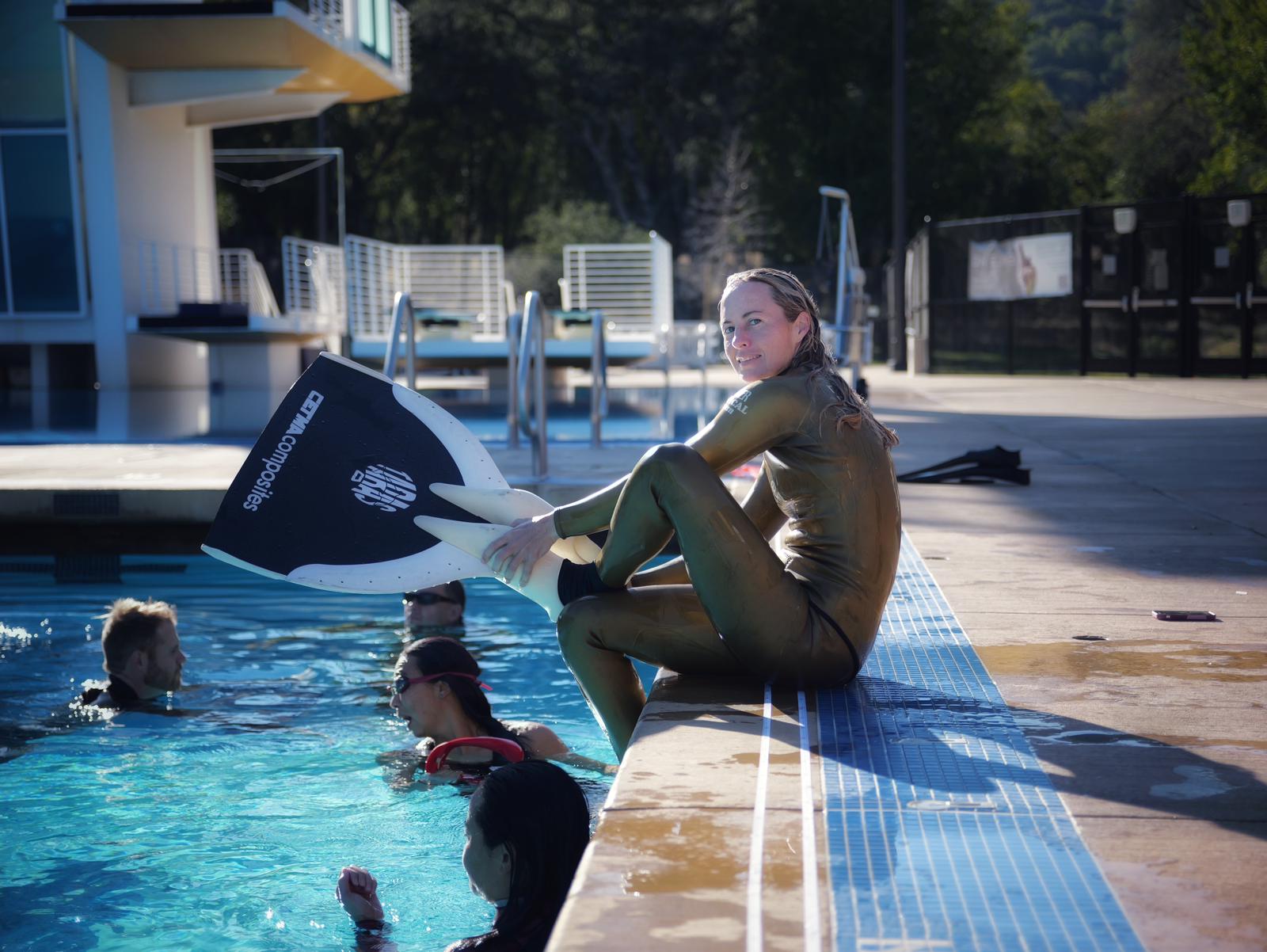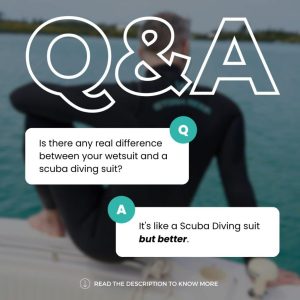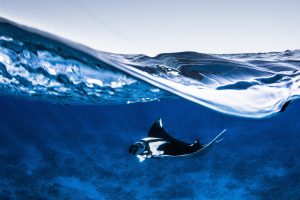Years ago, while working to build an orphanage in Tanzania, Renee Blundon got into ocean swimming for exercise. Swimming turned into snorkeling, then to scuba diving, to underwater hockey and eventually free diving.
“I was playing underwater hockey with a team and there were some free divers on the team that introduced me to it,” Blundon said. “They offered to take me to a shipwreck off the coast of the island and I saw them go down and free dive into the shipwreck and all around it, just holding their breath. I was totally mind blown.”
She took her new found love for the sport and took classes all over the world from Zanzibar, Tanzania, South Africa and Egypt to develop her skills. From world travels to interesting sports, Blundon has developed a passion in free diving that she hopes to continue for the rest of her life.

The next chapter for the 38-year-old Blundon is a career in the U.S. military. She recently studied at the Defense Language Institute in Monterey and is now on her way to Baltimore to study public relations. With her new found career she’s hoping to continue making time to free dive. Her hard work in the sport came to fruition last month.
Blundon broke a national record in the Dynamic Apnea with Fins discipline at a recent free diving competition in Novato, making a 189-meter (620 feet) underwater swim on a single breath of air. The previous DYN US National Record was 187 meters (613-feet), set in October 2019 by Claire Beatrix Paris from Florida.
Blundon organized and competed in the AIDA Official Dive Day Free Diving Competition, one of the first pool free diving competitions in the San Francisco Bay Area Dec. 16-17. She and several other athletes competed in several diving sports at the new Olympic-size pool at the College of Marin’s Miwok Aquatic Center.
Dynamic Apnea with Fins is a discipline of free diving where the athlete wears a mono-fin or long bi-fins and swims laps underwater. The goal of the sport is to cover as much horizontal distance as possible underwater on a single breath.
On Dec. 16 Blundon completed a 190-meter (623-feet) DYN dive, however, the dive was disqualified due to her incorrect surface protocol at the end of the dive.
“With AIDA there are specific rules and protocols, so when you come up from the dive you need to do the recovery breathing, take off your equipment and give the OK sign in a specific order,” Blundon said. “I gave the OK and then took off the equipment, and got a red card. Surface protocol is means for disqualification.”

Blundon said she was disappointed having passed the national record but not having it qualify, but kept positive and motivated. She reviewed the camera footage, made adjustments to her dive speed and changed some of her personal diving equipment and to make improvements in the competition.
“Because I looked at the footage, I figured out some things to improve like how to make the dive easier and how to get more alert when I’m coming up,” Blundon said.
The next day posed new challenges because of the rainy weather, wind and cooler temperatures. Less than an hour before her national record attempt, Blundon said she was so cold she considered rescheduling her dive to get out of the water and warm up, but decided to go for it.
“The dive was actually quite hard, because I was so cold before the dive,” Blundon said in a prepared statement. “I was shivering in the water and also on the warm-up dive. So with the heart-rate now higher to warm up the body and using up more oxygen, I really wasn’t sure if I could pull it off. But when the countdown began I just said to myself, ‘OK let’s do this.’”
Her hard work paid off, and she was able to break the record for a second time.
“The second time, I nailed it. That was exciting,” Blundon said.
Blundon said the location of the dive was due to her new job in the Air Force. Many military service members cannot go very far from where they are stationed, which can pose challenges for traveling.
“I thought, if I can’t go to a competition I’ll just make one here, so I followed all the steps to become a competition organizer,” Blundon said. “I didn’t want it to just be me out there and to free dive you need several people involved, so I invited my friends. I didn’t want to compete with other people either, so this was a noncompetitive free diving competition and we encouraged and supported each other.”
Blundon said her goal is to help get other Americans involved in the free diving sport. As she spent many years overseas, Blundon saw how popular free diving, spear fishing and other aquatic sports are in countries like Italy and France.
“Free diving is not as popular in the U.S.,” Blundon said, “but I want to grow it here as a sport, because it’s such a great sport.”



